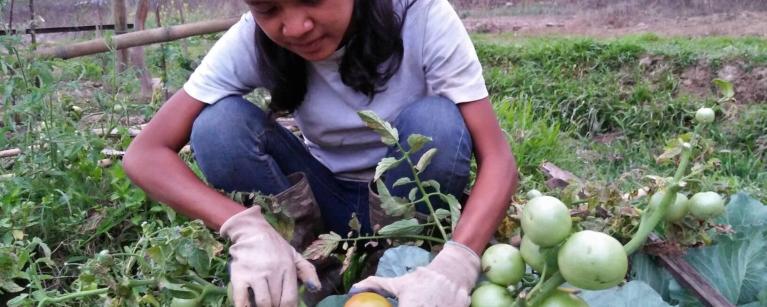Timor-Leste is one of the most climate-vulnerable nations in the world, facing increasingly intense rainfall, cyclones, floods, and droughts. These climate impacts are not only devastating rural livelihoods, food systems, and water security, but are also widening gender inequalities and deepening poverty. Women across the country—especially those in remote and marginalized communities—are bearing the brunt of climate disasters, with limited access to recovery resources, secure land, and decision-making power.
In this context, Oxfam in Timor-Leste has released a vital new report: Climate Justice for Women in Timor-Leste: Tracking Climate Finance to Build Resilience. The report exposes a critical gap in how climate finance is currently distributed. Despite repeated global and national commitments to gender equality, only 2.4% of climate finance in Timor-Leste supports projects that prioritize gender equality. Even more concerning, just 0.4% of climate funding directly supports women’s organizations or cooperatives.
This lack of targeted investment has serious consequences. Women are at the heart of climate resilience in Timor-Leste—they manage agroforestry, lead savings groups, and organize community disaster preparedness. Yet their work is underfunded, underrecognized, and often excluded from climate policy and finance decisions. Without change, climate finance risks reinforcing the very inequalities it should be addressing.
The report also maps the complex network of climate finance decision-makers in the country, from the National Designated Authority and the Ministry of Tourism and Environment, to international donors such as the Green Climate Fund and multilateral development banks. It highlights the lack of transparency and accessible information around climate finance flows, making it nearly impossible for communities—and especially women—to track whether funds are actually reaching those most affected by climate impacts.
Importantly, the report provides a roadmap for change. It calls on bilateral partners, development banks, and the Timorese government to commit a greater share of climate finance to gender equality, create mechanisms to fund women-led initiatives, and improve public transparency through platforms available in Tetun. Ensuring that climate finance supports women’s rights is not only a matter of justice—it is a pathway to more effective, inclusive, and sustainable climate solutions.
This analysis was conducted under the Kōtui Programme, a regional initiative led by Oxfam Aotearoa with support from the New Zealand Government. Kōtui aims to improve gender equality and women’s access to resources that enhance their resilience and wellbeing in the face of climate change.
In a time when climate finance must become more equitable and accountable, Climate Justice for Women in Timor-Leste serves as both a warning and a guide. It reminds us that empowering women is not just a side goal of climate action—it is central to building lasting resilience for all.
